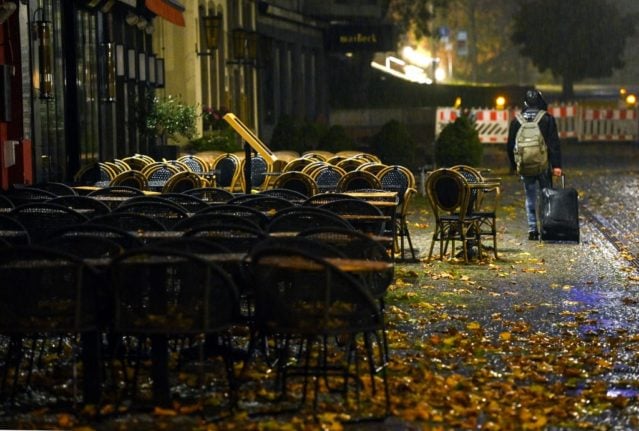On Saturday Health Minister Alain Berset told cantons with rapidly increasing contamination rates to urgently mandate stricter measures against the pandemic by December 11th.
This order particularly applies to Aargau, Thurgau and Solothurn, although Appenzell-Ausserrhoden, Basel-Country, Schwyz, Zurich, and Ticino are also concerned .
Most of the cantons said they would introduce more restrictions. But as reported by Swiss media, Aargau’s authorities announced on Monday that they wouldn’t take any measures for the time being “as there is no urgency to do so”.
Jean-Pierre Gallati, who is in charge of Aargau’s health department said cantonal authorities will wait to see how new restrictions work in other cantons before making any decisions.
When asked whether this approach is not too passive, Gallati reportedly responded, “I don’t care”.
READ MORE: What are the new Covid-19 hotspots in Switzerland right now?
However, Aargau’s obstinence could have an impact on the entire country.
If the canton doesn’t introduce stricter measures, “the Federal Council could impose nationwide tightening,” said Rainer Schweizer, professor emeritus of constitutional law at the University of St. Gallen.
Because of the specificity of Swiss law, “it is unlikely that the government will only tighten the rules in defaulting cantons”, he said.
Aargau should respect the federal order “out of fairness to other cantons. Otherwise, the selfishness of one canton could mean that even cantons with low numbers of infections will have to impose stricter rules”, Schweizer added.
To order a national shutdown, the Federal Council would have to declare the state of emergency, as it had during the first wave of the pandemic in March.
Berset ordered the tightening of measures in a video conference with cantons on Saturday.
The move is driven by the increasing number of Covid-19 infections in various German-speaking cantons and in Ticino.
In contrast, the French-speaking cantons that implemented tough measures in November recorded lower numbers.




 Please whitelist us to continue reading.
Please whitelist us to continue reading.
Member comments